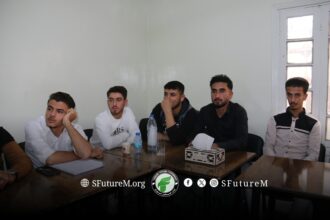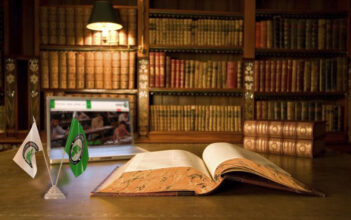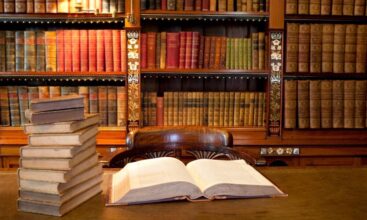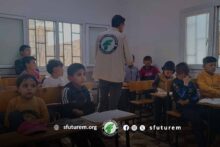Syrian Drama and Reality!
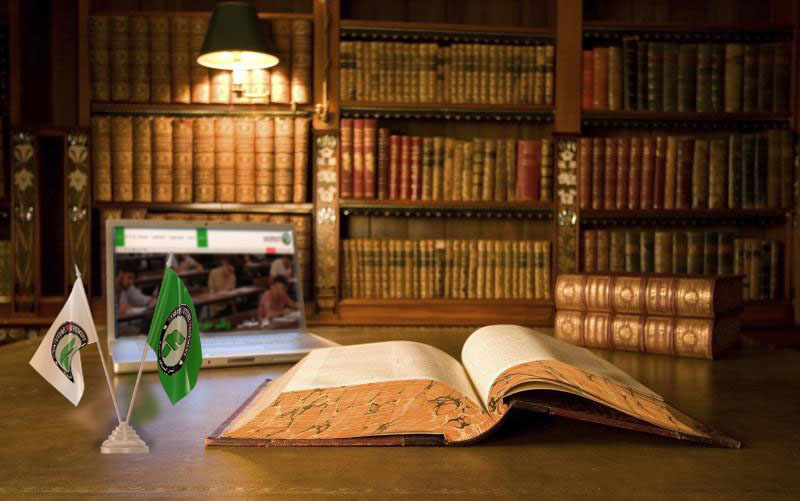
Syrian drama has always been a mirror reflecting the Syrian reality as solely desired by the Syrian regime. With the onset of the Syrian revolution in 2011, this mirror began reflecting a complex and multifaceted image of Syrian society! Before the revolution, Syrian drama was characterized by social criticism and a bit of political critique, expressing the feelings and hopes of the Syrian people. However, with the beginning of the revolution, Syrian drama started to present a more complex picture of the Syrian reality. During the revolution years, Syrian drama became a tool to express a mix of pain, hope, despair, and steadfastness, presenting real stories about ordinary people living in exceptional circumstances. It also started to offer a more realistic picture of the daily struggles faced by the Syrian people, under the watchful eye of the Syrian regime, like the series “Lost Village” and “Al Khurba,” which coincided with the pre-revolution period, and “Birth from the Side,” spanning the period after the armed revolution, to dramas like “Bone Breaking” in two parts, discussing the Syrians’ suffering with the power mafia and intelligence leaderships. After the revolution, Syrian drama became more mature and complex, presenting stories about people trying to rebuild their lives amidst destruction and chaos, and a more realistic picture of the challenges faced by the Syrian people in their struggle to survive.
The Role of Intelligence in Drama:
The Syrian intelligence has a significant impact on Syrian drama. After 2011, Syrian television drama began to introduce new character archetypes belonging to the Syrian intelligence, focusing on portraying the ideal officer character and presenting a mix between the traditional comical stereotype and serious ideal models concerned with the nation’s interest. Some reports suggest drama is used as a tool to improve the image of state apparatuses and refine the concept of nationalism. However, this portrayal might be distorted in Syria and not necessarily reflect the true reality of the Syrian intelligence! Several Syrian drama series have tackled the character of Syrian intelligence in different ways. Some of these series attempted to present a more positive image of Syrian intelligence, like the series “Days of Foolishness,” showing intelligence in two formats: the traditional foolish element and “Regret” as another example of Syrian drama addressing the character of Syrian intelligence, and “The Key,” which depicted the internal Syrian conflict among mafia men who were the cause of corruption.
Drama addressing the Syrian reality away from Syrian intelligence’s surveillance, although not allowed to be broadcast on Arab screens as stated by Yara Sabri, is embodied in two works: “Faces and Places,” the only Syrian series that mirrors the Syrian revolution starting in spring 2011, despite many criticisms directed at the work directed by veteran Syrian director Haitham Haqqi, and “Smile, General,” arguably the only drama that crossed the red line – the head of the Syrian regime – but with a fictional plot in an unreal country.
Statement and Position:
Under the hashtags: #Together_Against_Syria_TV #Syria_TV_Does_Not_Represent_Me, activists and journalists attacked Syria TV, accusing its management and administrative staff of evading responses to the official email sent to them, and not replying to WhatsApp groups either, holding them accountable before the Syrian revolution’s audience to respond to the petition signed by more than 200 activists, which demanded the cessation of the “Bone Breaking” series that reinforces Assad’s regime’s vision. This forced the director of Syria TV, Hamza Al-Mustafa, to write a lengthy tweet and post explaining their vision under the title: “Bone Breaking: Not Our Dramatic Tale with Drama.” The real issue lies in the absence of drama produced by the Syrian opposition, as neither businessmen nor Syrian opposition institutions have managed to benefit from the amount of artists who stood with the popular revolution against the Syrian regime, in addition to writers against the Syrian regime like “Samer Radwan,” the author of “A Minute of Silence” and “Birth from the Side.” Additionally, the idea of Syria TV addressing the Syrian audience across different segments is a national interest that may have been overlooked or missed by the activists who wrote the statement. But what is lacking in Syrian drama to address reality? It seems Syrian drama has addressed many issues and topics, from historical to social to political, but failed to touch the real wound, the head of power, managing only to approach dissecting the Syrian regime’s intelligence without directly tackling it in “Smile, General,” which, while crossing the red line, did so gently without addressing it directly. The drama’s treatment of the Syrian political reality, specifically, stayed far from approaching the four de facto powers in Syria, whether jihadist movements and their control over Idlib, the Free Army factions and their living conditions with external and internal complexities, the self-administration areas and their fight against ISIS, clashes with Turkey, the Syrian regime’s re-floating, Assad’s return to the Arab League, Asma al-Assad’s dominance over the country’s fortunes, Iranian and Russian interventions, and much more, presenting Syrian writers with significant and valuable issues to address in Syrian drama, aiming to touch upon the real, bleeding wound in Syria’s body for decades.
Ibrahim Mustafa
Scientific Office
Research and Studies Department
Studies
Syrian Future Movement (SFM)
References:
X / Hamzah Almustafa on X: “Not just Bone Breaking: Our Dramatic Tale with Drama. I write these long words, exceeding 1000, in response to some inquiries that reached me on the official email about some of the dramatic works we display in the current Ramadan, including the series Bone Breaking- The Cellars, and you see it as a step not in the interest of the television and its audience. In… https://t.co/7rxGXdkVvz”
Did the Syrian opposition fail to present drama serving the revolution? | Art | Al Jazeera Net
Can you be friends with Syrian intelligence outside of television drama? (syria.tv)
This is how Syrian drama evolved.. And this is how it declined (fanack.com)
Syrian drama.. An industry destroyed by the war machine | Sky News Arabia
Important milestones in the development and decline of Syrian drama: Works, characters, events, affected its course (arageek.com)
Syrian Intelligence: Origins and Development – Study of Intelligence and Political Violence – Harmoon Center for Contemporary Studies
The Syrian crisis present in Ramadan drama | Culture News | Al Jazeera
Syrian drama in Ramadan.. A little comedy, a lot of post-war suffering | Art | Al Jazeera
Syrian drama competes again between war, comedy, and Damascene environment | Independent Arabia
Syrian intelligence men… How did their image evolve in drama? (alaraby.co.uk)
